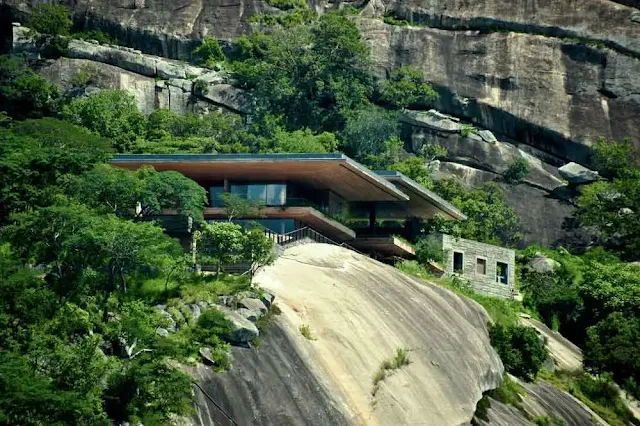Unmasking the Von Pezold Family's Battle for Justice against Zimbabwe
In the heart of Zimbabwe, the intricate dance between economic systems and political ideologies unfolds. Free-market capitalism, with its promises of prosperity and individual liberty, clashes with the deep-rooted complexities of Zimbabwe's history. At the center of this struggle lies the von Pezold family, owners of Border Timbers Ltd, a company that once stood as a symbol of growth and prosperity and successor of British South Africa Company (BSAC or BSACo)'s forestry business — BSAC was chartered in 1889 following the amalgamation of Cecil Rhodes' Central Search Association and the London-based Exploring Company Ltd, which had initially competed to capitalize on the expected mineral wealth of Mashonaland but united because of common economic interests and to secure British government backing.
Today, the von Pezold family finds themselves entangled in a legal battle with the nation they now call home. They have filed a motion in the United States, seeking justice and restitution totalling $277 million. Their claim alleges that Zimbabwe violated their rights, and they are now seeking recourse in the American courts. However, Zimbabwe vehemently contests the authority of the U.S. courts in overseeing this dispute and enforcing any potential award.
To understand the origin of this conflict, we must rewind the clock to 1988 when Rüdiger von Pezold a German-based lawyer and investor together with his wife Princess Elisabeth, the daughter of Prince Heinrich Schwarzenberg, Duke of Krumlov of Czechoslovakia acquired Zimbabwean agricultural and forestry assets including the Forrester Estate in Mvurwi.
 |
| von Pezold family home, perched on a rock, overlooking Gota Dam in Mvurwi, Zimbabwe |
Entrusting the management of their vast African holdings to their son Heinrich in 1998, the von Pezold family aimed to ensure the growth and preservation of their Zimbabwean empire. Their success seemed unstoppable until the early 2000s when Zimbabwe's agrarian reforms struck, resulting in the confiscation of portions of their property.
For years, the von Pezold family thrived, overseeing Border Timbers Limited through Rift Valley, a corporation formed in 2004 following a partnership with the Norwegian Høegh family—an esteemed name in maritime transport since the early 1900s. At the centre of this fusion, there are the three large estates of the von Pezolds in Zimbabwe, as well as those of Forrester, Border and Makanda, spanning over 400,000 hectares. The family's estates produced a diverse array of crops, including tea, coffee, avocadoes, and bananas. Tobacco and timber remained the core businesses, with Northern Tobacco and Border Timbers managing these ventures, respectively.
As dispossessed Zimbabwean families sought to reclaim their ancestral lands in Manicaland, after independence in 1980, they proposed a "Joint Forest Management" system. This system aimed to restore access to the land for local communities while allowing Border Timbers Limited to continue its operations. A fair share of the income generated would have supported the local community's well-being. Regrettably, the von Pezold family declined this opportunity for reconciliation, further exacerbating the tensions surrounding their holdings.
Border Timbers Limited, born from the amalgamation of three companies Border Eastern Forest Estates, Renfee Timbers (Pvt) Limited and Forestry Management Services Pvt Ltd in 1979, has deep roots in Zimbabwe. The British South Africa Company's plantations, established in the Imbeza area in 1924 were substantially increased in 1946 after the Second World War to include the Chimanimani, which later fell under the purview of Forestry Management Services. Over the years, the plantation size grew to its current extent of 47,886 hectares. Border Timbers Limited, which was listed on the Zimbabwe Stock Exchange in 1959 had become an integral part of the nation's economic fabric and is now a subsidiary of the Rift Valley Corporation.
In 2010, Border Timbers Limited and the von Pezold family invoked Germany and Switzerland's investment treaties with Zimbabwe, challenging the expropriation of their properties under the fast-track land reform program of 2005. Following lengthy legal proceedings, Zimbabwe suffered defeat in both disputes. The arbitrators ordered the return of the land to the von Pezolds, albeit at the cost of displacing settled communities labelled as "Invaders" in the award. Additionally, Zimbabwe was mandated to pay compensation of US$65 million plus interest or a staggering US$196 million if restitution was not possible. Despite the state's attempts to challenge these awards, they were ultimately unsuccessful in November 2018.
Now, seeking justice and reparations, the von Pezold family has turned to the United States for resolution. Their lawsuit against Zimbabwe aims to enforce the previous awards and secure the rightful compensation owed to them. The legal battle continues, echoing the echoes of history where ownership of the land overshadowed the rights of its natives.
The von Pezold family's plight reflects the intricate interplay between economic systems and the legacy of a nation. Their struggle for justice represents a chapter in Zimbabwe's ongoing narrative, where the past and present collide. As this legal drama unfolds, the fate of Border Timbers Ltd and the resolution of Zimbabwe's historic land disputes hang in the balance.
